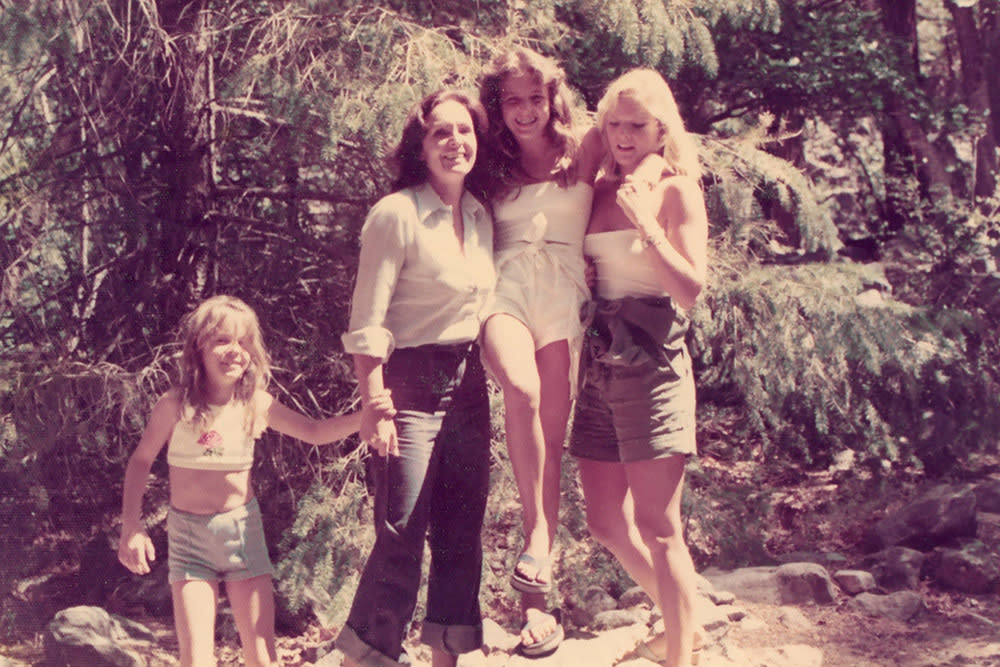Denise Brown Reflects on Her Sister Nicole Brown Simpson’s Murder 30 Years Later: ‘She’s Not Just a Crime Story’

Thirty years after Nicole Brown Simpson’s murder, her sister Denise Brown gathered friends and family to reflect on her legacy for the upcoming “The Life and Murder of Nicole Brown Simpson.” The four-part Lifetime docuseries doesn’t sensationalize the crime or the “trial of the century,” in which Brown’s ex-husband, O.J. Simpson, was accused and eventually acquitted of the murder charges. Instead, it is a portrait of Brown Simpson by those who knew and loved her. Its June 1-2 release also serves as a riposte to the media attention around Simpson’s death on April 10. In the three decades since her sister’s passing, Denise Brown has advocated for victims of domestic violence and helped pass the Violence Against Women Act.
I’ll never forget the time. I’ll never forget the day. It was 6:15 a.m. and I heard a scream from my mother that I had never heard before. I ran to her room, saw her on her knees, and she said, “Nicole’s been killed.” I thought it was a sick prank. We had just seen her the night before. I said, “Oh, my God. He finally did it.” That was my gut reaction. I knew in my heart, at that moment, that O.J. killed her. I never veered from that. I never had any doubts about it — never. It’s still the way I feel.
More from Variety
I have wanted to do a documentary for 10 years, but I never felt the timing was right. I thought if I could find someone who would make Nicole’s voice be heard, and not make it about the trial or him, I would be happy. I’ve been burned so many times. I thought it could be beautiful to bring closure — not to the domestic violence side, because that’s something I will be advocating against for the rest of my life — but to the murder and trial. It was extremely sad when people would tell me, “We don’t even know what her voice sounds like.” It broke my heart because nobody gave her that opportunity.

I hope people take away that she was a real person and not just a crime story. She was a mother, daughter, sister, granddaughter and best friend to many. I want victims to know help is out there. I really want people to understand the severity that if a victim tells you, or calls 911, they are at their wits’ end. It’s the last thing that they want to do, and they are scared for their life. Believe them. It’s hard for a victim of domestic violence to come forward because a lot of times, they’ll get the response: “What did you do to deserve that?” It’s always turned around onto the victim. But there are people out there to help them. There is hope for them.
I didn’t know before about the cycle of power and control. More than physical violence, there’s verbal, emotional and psychological abuse of putting somebody down, saying: “You’re stupid,” “You’re ugly,” “You’re worthless.” I have heard from victims of domestic violence that those words last a lifetime. They say emotional and psychological abuse affects them more than physical violence because the bruises go away. I want Nicole to get credit because her murder shifted people’s outlook on domestic violence. There’s a lot of shame with domestic violence. So, support the person who is telling you this because it takes a lot for them to come forward.
Her life was stolen from her and while her abuser is finally gone, it doesn’t take away the anguish we feel or the pain of her children who lost their mother. It was emotional to relive it in the documentary. It was helpful and cathartic, but it was the hardest thing in the world, especially 30 years later. Because at the time, there was still that shock value. Now, there’s no shock. It’s just remembering. And that broke my heart.
As told to Rebecca Rubin
Best of Variety
Sign up for Variety’s Newsletter. For the latest news, follow us on Facebook, Twitter, and Instagram.
